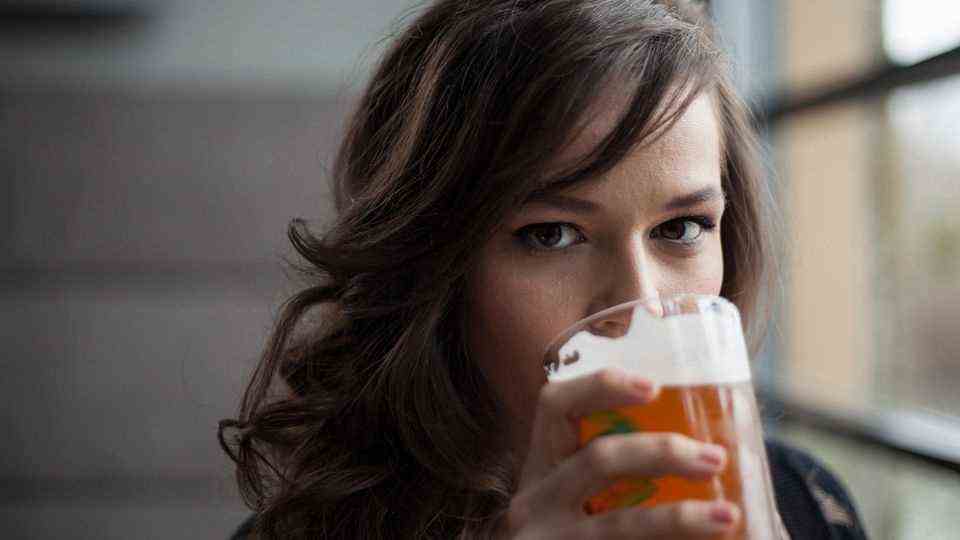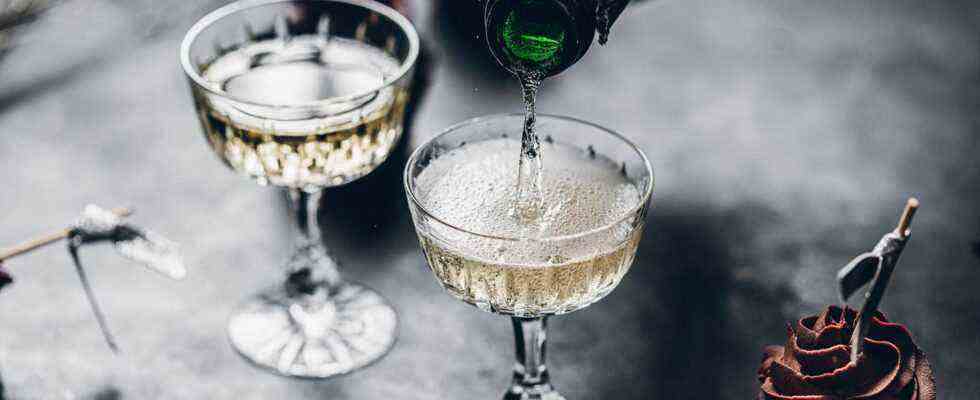Good to know
How alcohol sabotages our sleep – and how it can be prevented
If you drink too much water in the evening, you have a good chance of getting a bad night’s sleep
© alvarez / Getty Images
The night after a social evening is often like an ordeal. Alcohol is to blame, experts say. In this way, wine and beer spoil the night’s sleep.
Social evenings with friends have become rare for many people in the pandemic. It’s no wonder meetings are getting a little more rambunctious these days. One drink, as originally planned, can quickly turn into several. The rude awakening usually follows in the hours afterwards – in the form of poor sleep, restless “rolling and turning in bed” and pronounced dreams.
Many people are not aware that alcohol causes a bad night’s sleep. After all, two or three glasses of wine or a drink in the evening even help you fall asleep. In the second half of the night, however, the choice of drinks often takes revenge. Alcohol initially has a “sedating” effect, explained the doctor and psychologist Jennifer Martin in an interview with the “New York Times“. But as soon as it is metabolized, it is “very activating.” Why is that?
Large amounts of alcohol usually circulate in the blood shortly after going to bed. Among other things, this affects a messenger substance in the brain – the so-called gamma-aminobutyric acid. This ensures the initially sedating effect: sleep in the first half of the night is usually deep, and falling asleep is also easy.
If the alcohol is gradually broken down after a few hours of sleep, the effect reverses. Sleep becomes lighter and restless, the typical “tossing and turning” begins. Dreams are also particularly vivid during this phase and are easy to remember – a side effect of light sleep.
Alcohol increases urination
Also not sleep-promoting is that alcohol increases the urge to urinate – with the result that the bladder pinches at night. The way out of the bathroom then often leads first into the kitchen to drink a glass of water. The typical “alcohol brandy” should also be familiar to many.
No wonder if you feel tired and worn out the next morning after such a night. Most of the time it has to be caffeine in the form of coffee. But that can mean that the next night isn’t very restful either. A vicious circle begins, which some people try to escape by turning to wine and beer again in the evening to help them fall asleep.

However, doctors strongly advise against it. In the worst case, dependency can develop. Sleeping pills and alcohol are also a dangerous mix when taken together. They can result in circulatory collapse.
This is how healthy sleep works
Doctors generally advise drinking alcohol in moderation – this also prevents bad sleep. For men, the daily amount should not exceed two 0.3 liter bottles of beer or two glasses of wine (0.125 liters). Half is for women. In addition, no alcohol should be drunk on two evenings a week.
It can also be helpful to stop drinking alcohol altogether in the hours before bed and switch to water instead. However, two alcohol-free hours before bed is not enough. The ideal time window is around four to six hours. That means: If you drink a glass of wine with friends at 6 or 7 p.m., you can expect a restful night.
Sources: BZgA / New York Times

